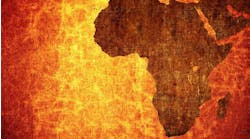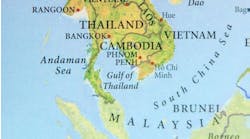Americas, sub-Saharan Africa to continue domination of high-impact drilling
Offshore staff
LONDON – Investors are starting to question whether there is a need for further exploration in light of the huge resource base that has yet to be developed, according to consultant Wood Mackenzie.
However, Alana Tischuk of Wood Mackenzie’s global exploration team, countered that “the challenge is to achieve success at scale. Companies will drill in the hope of finding better resources than those they already have – lower-cost barrels with a higher margin.”
The largest and most valuable prospects continue to lie mostly in new and emerging plays which are mostly the demand of the majors, she added.
Typically, independent explorers have quickly exited plays where they have limited early success, Tischuk continued, while the majors have held on to their acreage until the end of its allotted term. “But we expect them to adopt the swift turnaround approach of their smaller, nimbler cousins.
“Many of the areas the majors have added are ultra-frontier, giant blocks, added for minimal commitments. This trend of fast turnover of new acreage may not become apparent in 2020, but instead materialize in the next three years or so.”
Worldwide, Wood Mackenzie expects 500-600 wildcats to be completed this year, adding around 15 Bboe, in line with the industry’s performance since 2014.
Associated investments should reach $25-$30 billion, similar to that spent in 2019, although the figure could be 5-15% lower if cost efficiencies continue.
Hotspots should be the Americas, particularly Brazil and Mexico, and Guyana/Suriname.
Drilling in Guyana will continue both in the prolific Stabroek block and beyond, while to the east off Suriname, where Apache recently announced the giant Maka Central discovery, Wood Mackenzie expects wells on four blocks in 2020, operated by Apache, Petronas, Kosmos, and Tullow.
There will also be potentially ultra-high impact wells off sub-Saharan Africa. Total will follow up on last year’s giant Brulpadda gas condensate discovery off South Africa with up to four more exploration wells in the region this year, three targeting oil in the deepwater Outeniqua basin.
In addition, the company will also drill the potential 2-Bbbl deepwater Venus oil prospect off Namibia. Shell and Kosmos are other companies expected to test the waters for giants offshore Namibia in 2020.
Russia, however, may deliver some of the largest volumes overall as domestic companies continue to pursue giant gas plays in the Arctic offshore and emerging offshore oil plays in the Far East.
On the downside, Tischuk said that fewer companies are drilling fewer wells and the corporate landscape has narrowed by 50% since 2013.
Small independents and private equity-backed companies in particular lack the financial resources or the risk appetite to stay in the longer-term exploration game.
01/22/2020



